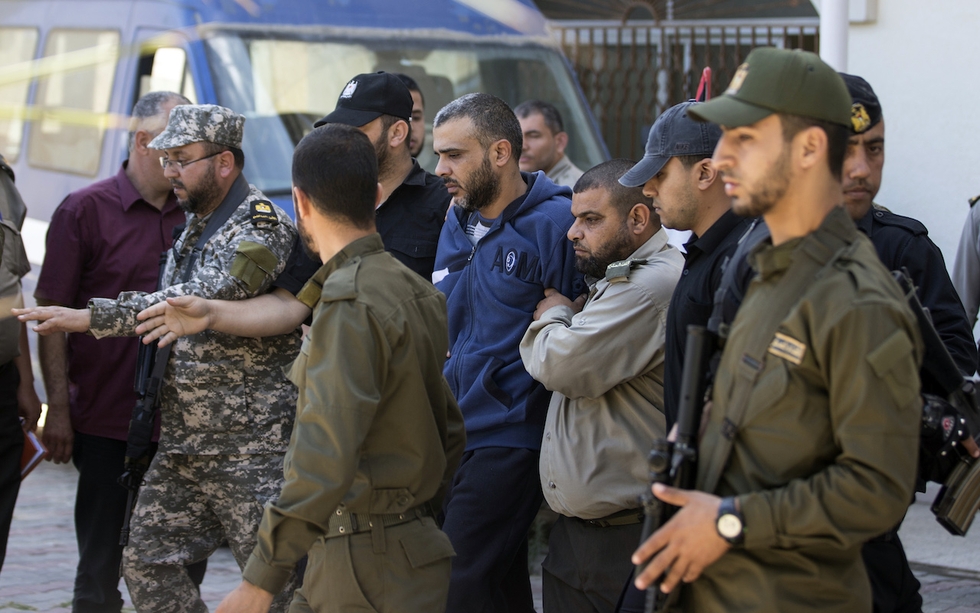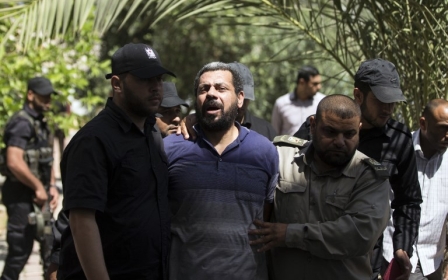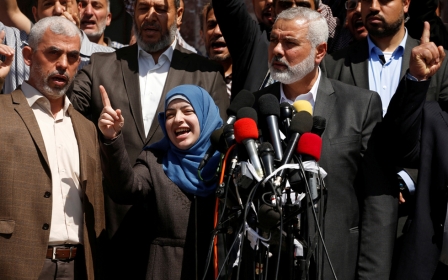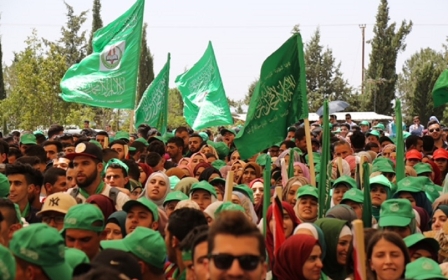Hamas executes three over commander's murder

The Palestinian Islamist movement Hamas executed three people in the Gaza Strip on Thursday over the assassination of one of its military leaders allegedly on behalf of Israel.
Two men were hanged to death in Gaza City over the killing of Mazen Faqha in March, while a third was executed by firing squad, said an AFP correspondent who attended the executions.
Hundreds of people were allowed to watch the executions, though the streets around the site were closed to the public.
One of those executed, Ashraf Abu Leila, 38, was named as the alleged assassin and hanged.
Abdallah al-Nashar, 38, and Hisham al-Aloul, 42, were convicted of being his accomplices and "collaborating with the Zionist enemy".
Nashar was shot instead of hanged as he was previously an officer of the presidential guard with Palestinian president Mahmoud Abbas, who leads Hamas' rivals Fatah.
The executions, which come only two weeks after the announcement of their arrests, were immediately condemned by human rights groups.
Human Rights Watch (HRW) said in a statement the "rush" to kill the men "smacks of militia rule, not the rule of law".
Hamas had released alleged confessions from the three men, which rights groups said were likely obtained under duress.
Amnesty International said the court they were tried in "utterly disregarded international fair trial standards".
Citing figures from the Palestinian Center for Human Rights, HRW said 25 people had been executed in Gaza since Islamists Hamas seized control in 2007.
Military leader
Faqha was shot dead on 24 March near his house in Gaza City.
He had been in charge of forming cells for Hamas's military wing in the occupied West Bank.
He played an important role in preparing major attacks, including a suicide attack in the Israeli settlement neighbourhood of Gilo in east Jerusalem in 2002 that killed 19 people.
Israel sentenced him to nine life sentences plus 50 years, but he was released in 2011 along with more than 1,000 other Palestinians in exchange for Gilad Shalit, an Israeli soldier Hamas had detained for five years, and transferred to Gaza.
The well-planned assassination in the middle of the Hamas-run Gaza Strip shocked the Islamist movement.
Hamas immediately blamed its arch-enemy Israel, with which it has fought three wars since 2008, and implemented strict border restrictions on those seeking to leave the Palestinian enclave.
Israel has not confirmed or denied the allegations.
Last month, Israeli Defence Minister Avigdor Lieberman said his country did not seek "adventures" in Gaza and suggested Hamas itself could have killed him.
Three other men accused of collaborating with Israel in unrelated cases were executed shortly after Faqha's killing.
At the same time, Hamas offered a one-week amnesty for other alleged collaborators, encouraging them to turn themselves in.
Israel has maintained a crippling blockade on Gaza for a decade and most recently fought Hamas in 2014.
UN officials have called for the blockade to be lifted, citing deteriorating humanitarian conditions, but Israel says it is needed to keep Hamas from importing weapons or materials used to make them.
Gaza's sole crossing with Egypt has also remained largely closed in recent years.
New MEE newsletter: Jerusalem Dispatch
Sign up to get the latest insights and analysis on Israel-Palestine, alongside Turkey Unpacked and other MEE newsletters
Middle East Eye delivers independent and unrivalled coverage and analysis of the Middle East, North Africa and beyond. To learn more about republishing this content and the associated fees, please fill out this form. More about MEE can be found here.




